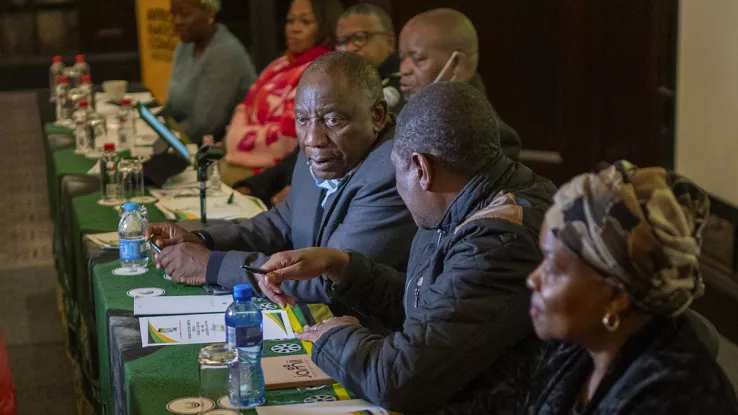Africa
Historic Day: South Africa Parliament Gears Up for Inaugural Session and Presidential Election

Lawmakers are anticipated to vote for the country’s president on Friday after being sworn in during the initial session of Parliament.
Additionally, the lawmakers are expected to select the new speaker and deputy speaker of Parliament, decisions that will be influenced by negotiations between the ANC and opposition parties following the election results announced almost two weeks ago.
Parties are facing a deadline of Thursday to finalize negotiations in order to meet the constitutional requirement of swearing in lawmakers and electing the president within 14 days of the election results being declared.
The African National Congress secured 40% of the national vote in the fiercely contested election, followed by the Democratic Alliance (DA) with slightly over 21% and the newly established uMkhonto weSizwe Party with approximately 15% of the vote in their inaugural election. Instead of forming a traditional coalition with a few parties, the ANC has chosen to establish a national unity government that will include most political parties that participated in the election. According to the South African Constitution, only one-third of the 400 lawmakers in Parliament need to be present for a quorum and for the presidential election vote to proceed.
Lawmakers are anticipated to vote for the country’s president on Friday after being sworn in during the initial session of Parliament. Additionally, the lawmakers are expected to select the new speaker and deputy speaker of Parliament, decisions that will be influenced by negotiations between the ANC and opposition parties following the election results announced almost two weeks ago.
Parties are facing a deadline of Thursday to finalize negotiations in order to meet the constitutional requirement of swearing in lawmakers and electing the president within 14 days of the election results being declared.
The African National Congress secured 40% of the national vote in the fiercely contested election, followed by the Democratic Alliance (DA) with slightly over 21% and the newly established uMkhonto weSizwe Party with approximately 15% of the vote in their inaugural election. Instead of forming a traditional coalition with a few parties, the ANC has chosen to establish a national unity government that will include most political parties that participated in the election.
According to the South African Constitution, only one-third of the 400 lawmakers in Parliament need to be present for a quorum and for the presidential election vote to proceed.
